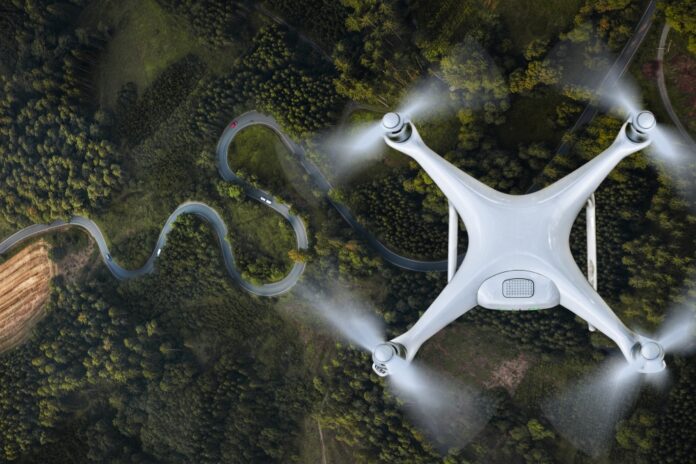In a new report, Vodafone UK has called for commercial and public sector drones to be fitted with SIM cards to give them cellular network connectivity.
It says this would help reduce illegal drone use, such as the activity which closed Gatwick Airport in December 2018 and several other “near miss” incidents with passenger aircraft.
The Cellular-connected Drones report, written by WPI Economics for Vodafone, finds that 80% of 2,000 members of the public surveyed would support more widespread adoption of drones if there were a mechanism to provide increased safety, security and monitoring.
Ensuring drones were fitted with SIM cards would enable them to be flown beyond “visual line of sight” of their operators, the report argues, enabling new use cases. Currently, drone pilots must keep their drones within sight at all times.
Drone opportunities
New applications could include: delivering time-critical medical supplies; inspecting power lines, bridges and other infrastructure; monitoring and responding to emergency situations, including firesand traffic accidents; improving agricultural efficiency through “precision farming”; surveying forests, buildings and construction sites; and providing accurate flood maps and damage assessments for the insurance industry.
Cellular connection could also facilitate an Unmanned Traffic Management (UTM) system to monitor drone identity, location and flight plan authorisation, as well as enable dynamic no-fly zones, according to Vodafone.
The report calls for the government to establish a “blue light” drones fund, to enable emergency services and NHS trusts to trial drones for new purposes, as well as to set up further testing facilities for UTM systems and Beyond Visual Line of Sight operations.
Further, it argues for more work to explore how cellular connectivity could facilitate UTM systems, dynamic no-fly zones and electronic detectability.



